Kamchatka: Pollution killing sea life in Russian far east
- Published
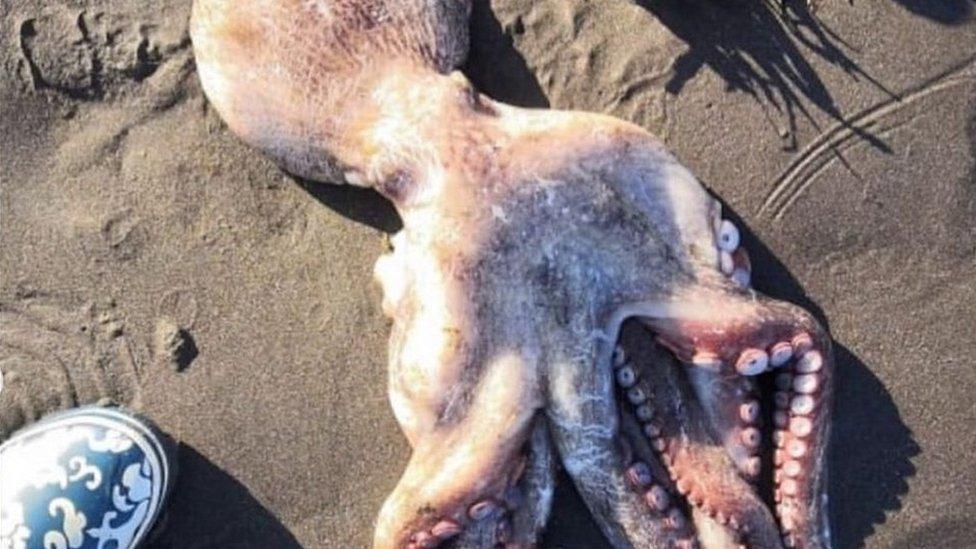
A dead octopus - among many dead sea creatures washed ashore in Kamchatka
Many dead sea creatures have washed up on beaches in Kamchatka, in Russia's far east, in what is being treated as a major marine pollution incident.
Video and photos posted on social media show dead octopuses, seals and other dead sea life, as well as a large stretch of discoloured ocean.
Local residents who used the Pacific beaches complained of vomiting, fever, rashes and swollen eyelids.
Initial analysis detected oil products and phenol in the water.
The environmental group Greenpeace has called it "an ecological disaster".
Kamchatka is one of Russia's remotest regions, famous for its pristine nature and active volcanoes.
"We began to see that something was wrong with the water because after an ordinary surf you come out feeling good, but this time it felt like we had burned eyes, we couldn't even see straight," local surfer Rasul Gadzhiev said.
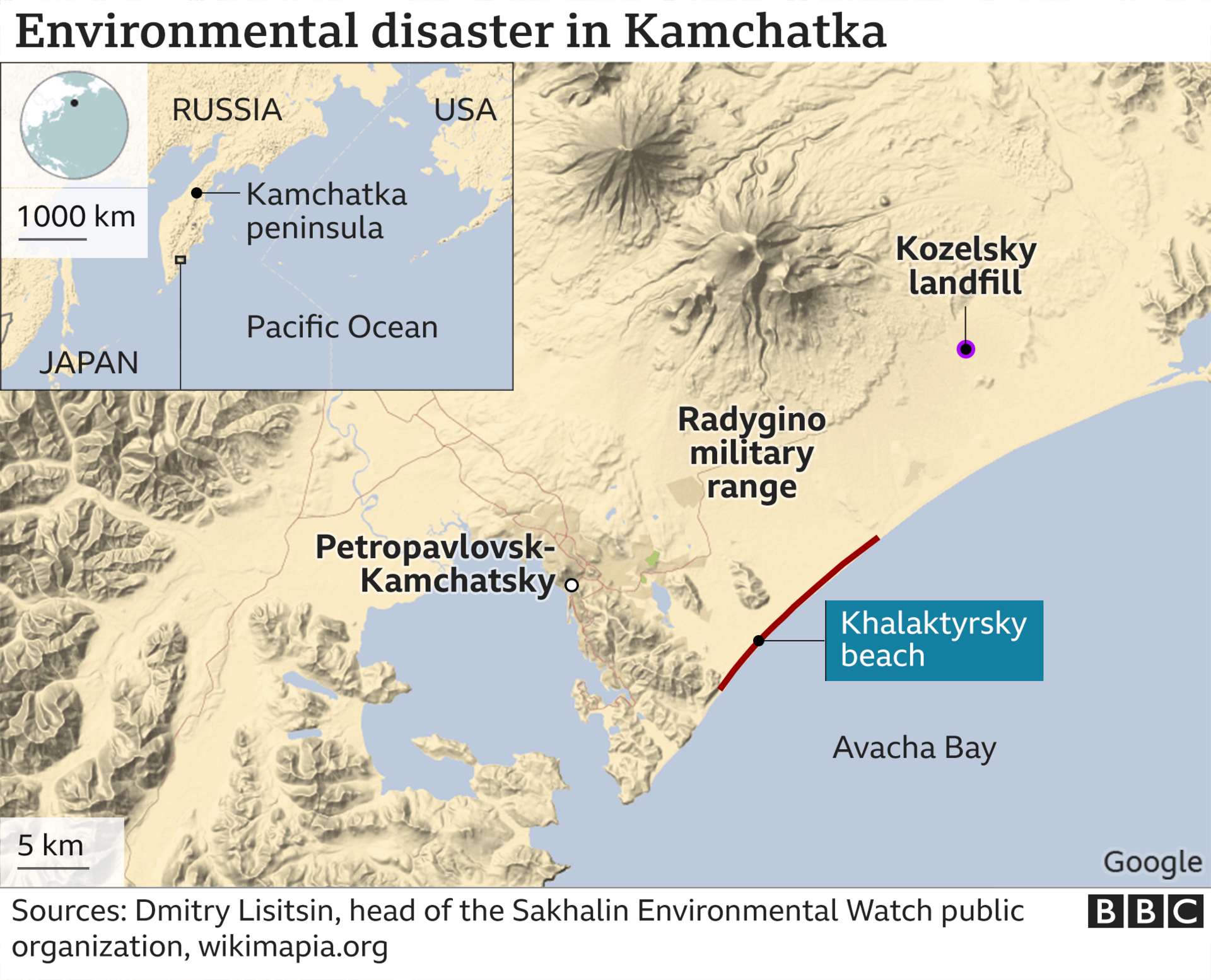
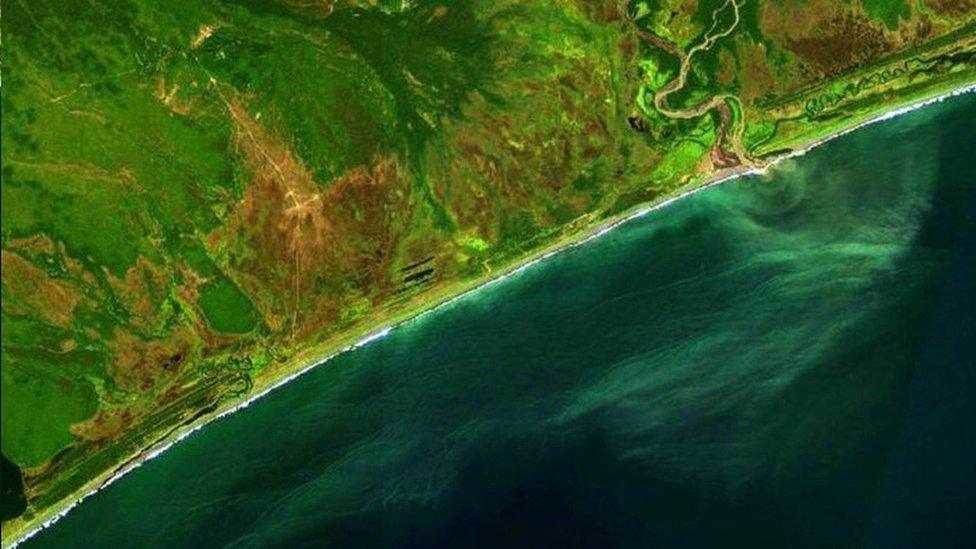
Discoloured Pacific waters can be seen along the Kamchatka shore
Another surfer, using the Instagram handle yola_la,, external wrote that "the seabed is all dead. Octopuses, fish, starfish and sea urchins - they're all dead from Cape Nalychev to Avacha Bay, and that's more than 40km (25 miles)".
She said surfers in the area had first complained of feeling ill three weeks ago.
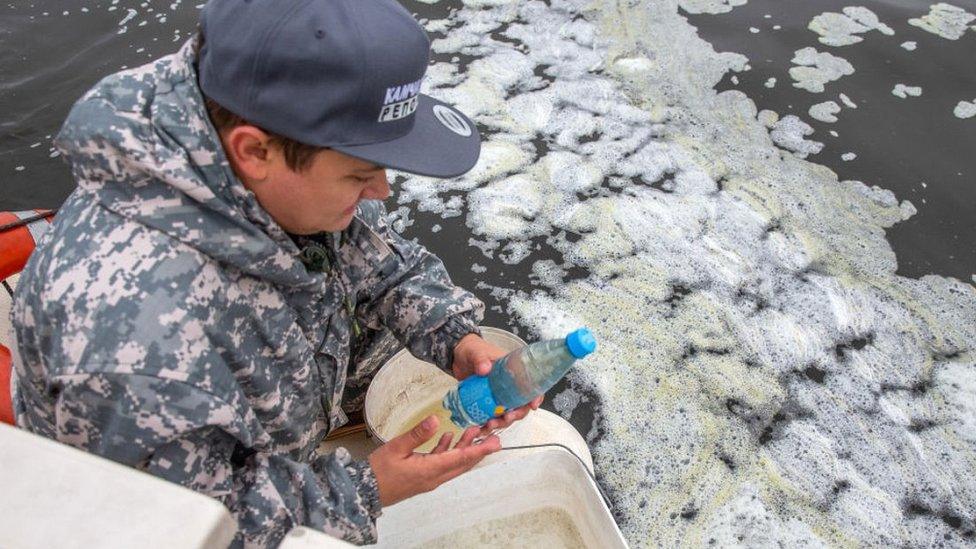
Water samples are being collected in Avacha Bay, Kamchatka
The Kamchatka administration website says Russia's emergencies ministry is investigating. Specialists are collecting samples from the beaches and rivers and using drones to help in their analysis.
The website says there were reports in late September that the waters on Khalaktyr beach had changed colour and had a peculiar smell.
It confirmed that dead octopuses, seals and other sea creatures had been washed up.
Kamchatka governor Vladimir Solodov said volunteers were also helping the authorities in their investigation.
"We cannot claim that the ocean is dying wholesale here, but now it's really important for us to assess the scale of this," he said.
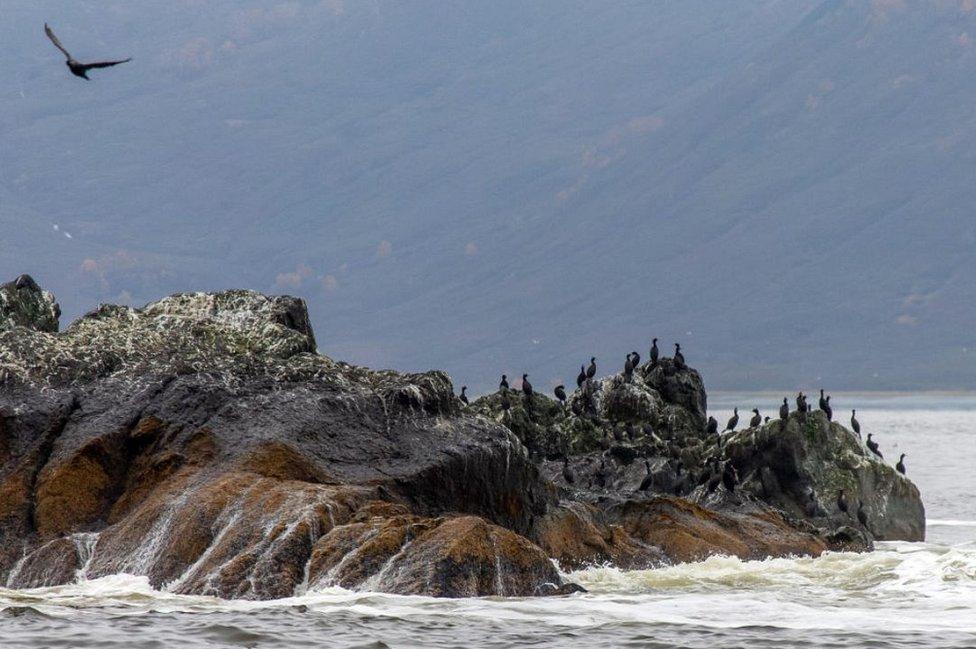
Cormorants on rocks in Avacha Bay
More on Russia's environmental problems:
Large mounds called thermokarsts in Siberia are a result of permafrost thawing